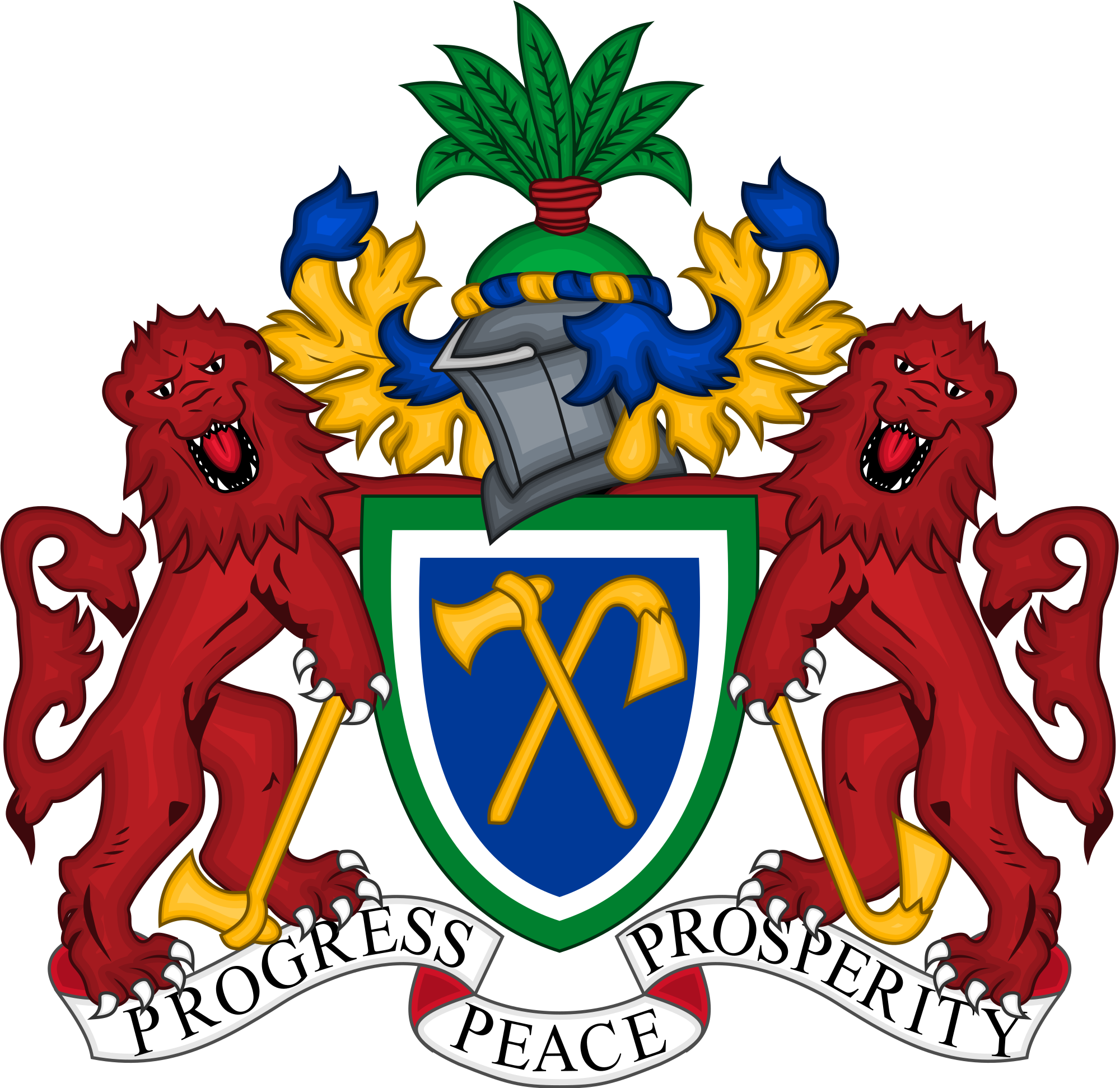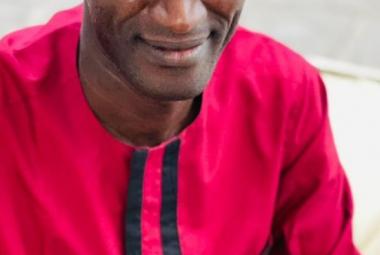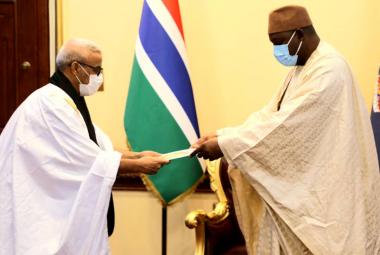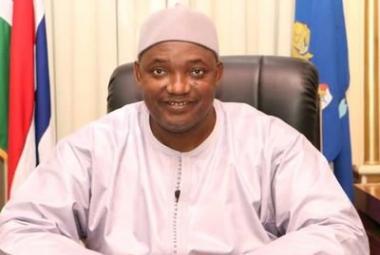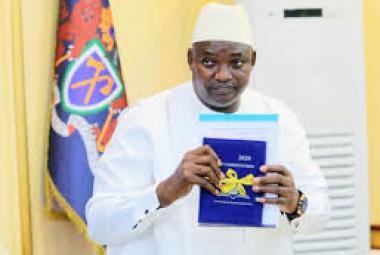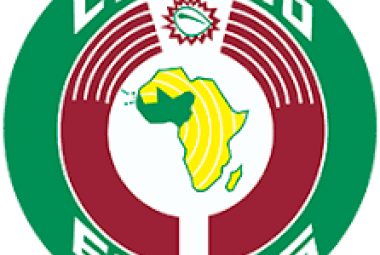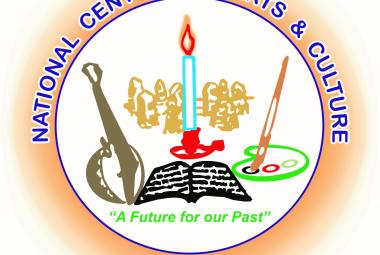By Awa DK CONTEH
Professor Abdoulie Saine, expert witness and author was summoned to give his expert opinion before the 11 session of the Truth, Reconciliation and Reparation Commission (TRRC) on what led to Jammeh becoming a dictator.
Prior to his testimony, Professor Saine was told by Lead Counsel Essa Faal that his task was contained in a letter of mandate and term of reference sent to him by the Commission tasking him to prepare a report and make analyses on what led to dictatorship in The Gambia.
Professor Saine presented a report of 59 pages detailing how and what led to Yahya Jammeh becoming a dictator. He started his narration with a background which led to Babili Mansa or Nasirou Deen. He said for analytical view, he looked at the individuals, their background, and orientation. He added another factor he put into consideration was the regional level.
According to him, the Jawara regime was able to nurture democracy, rule of law and respect for human rights and The Gambia was doing very well at the time. He indicated Jawara's modest development in the areas of health, economy, infrastructure and education. However, he said this was not enough in addition to the social and economy differentiation happening in the country. Saine further stated that in 1990 there was so much corruption as government employees were paying themselves huge per diems.
The pronouncement by Jawara in Mansakoko created two camps and there was a general perception that Jawara cannot be dislodged from power through the ballot box. He said Coup d’etat do occur based on corruption as justified by military officers. However, he said those that toppled the Jawara regime did so based on greed and hunger for power as regard their inexperience and low education.
Professor Saine alleged that the AFPRC that claimed that their intention was to combat corruption and flamboyant life of the Jawara government did exactly that if not worse than that. Saine testified that in some countries, they did not believe in Civilian Supremacy because they thought that they can do better.
He opined that the Gambia National Army (GNA) was dysfunctional and lacked discipline in the system. On societal and environmental factors, he said the things he looked into was how societies were formed, the class differences and ethnic issues.
By 1994, The Gambia had become divided because of the different views held that it was not possible to remove Jawara through the ballot box. The announcement by Jawara for a successor also contributed to the success of the coup.
"The instability of The Gambia also contributed in some degree to the success of the coup." He added that the failure to pay Gambian soldiers who were part of ECOMIG in Liberia was a contributing factor for the fact that they were not paid their respective salaries and allowances as well.
“The influx of refugees from Liberia and Sierra Leone and Southern Senegalese region of Casamance created the perception that the country was not doing enough and this also contributed to the coup. Former President Yahya Jammeh and his cohort engineered the process because they created the Independent Electoral Commission (IEC) and after that the 1997 Constitution was quickly crafted where age limit was expunged and decree 65 was inserted. This allowed the military to arrest and detain people. They muzzled the press and also used the same Constitution to execute prisoners including some Senegalese nationals”.
“Jammeh further inserted in the 1997 Constitution a provision that would enable him to do business and dismiss judges as well. The former President banned political parties except PDOIS and then upcoming UDP Party. He created a culture of silence by creating the National Intelligence Agency (NIA) while some people disappeared and others get tortured. " Jammeh learned well from Jerry Rollings of Ghana," Professor Saine said and further testified that the November 11, 1994 incident was used by Jammeh to send a strong signal to people who want to stand against him. In addition to maintaining power, Jammeh used the green boys, the Junglers and ‘black-black’ to cling on to power by using them to kill innocent citizens.
The former President, he said also used other state institutions such as the Judiciary as many Nigerian judges were used to imprison Gambians on trumped up charges. “What was the impact of the hiring on the people that were hired and fired?” Lead Counsel Faal quizzed.
In response, Professor Saine said people that were imprisoned by Jammeh later became his friends and whistle blowers. “A vivid example is Rambo Jatta, a victim of Jammeh's regime but now a loyalist to Jammeh which he said is a disease of the mind”.
He said Jammeh also used religion to nurture dictatorship in The Gambia. Imams and religious leaders implored citizens not to challenge their worldly leaders because they were installed by God. The belief that Jammeh had super natural powers, can cure AIDS and also provide treatment to barren women was given a religious interpretation, he added. Continuing his testimony, witness Saine said Jammeh also Jolanised the institutions such as the security sector and Gambia Radio and Television Services (GRTS). He sent many Jolas on further studies and used GRTS as a political platform to control the narrative. He also claimed that he could cure HIV/AIDS and infertility. He personalized the State from Central Bank to GRTS and Gambia Revenue Authority (GRA). Jammeh was very deliberate in what he was doing.
"Jammeh's behaviour made the economy to lose diet” Professor Saine said and added that Jammeh was not an efficient administrator despite the fact that he became the richest as others stated that he misappropriated almost a billion dollars. “Jammeh turned public funds into his personal ATM. By the end of his rule, he literally left empty state coffers. He approximately stole $360,000,000 while other sources put him at $1 Billion”.
Professor Saine opined that monies misused by Jammeh could have been used to improve the health care system or build a library for the University of The Gambia (UTG). He said Mandinkas suffered primarily such as Lawyer Ousainou Darboe whom Jammeh described as a drunkard and referred the Mandinkas as enemies and foreigners. He further threatened to kill and place them where even flies will not see them. Saine described Jammeh as a leader gone mad.
The former President did not only stop at attacking Mandinkas but he also attacked women engaged in skin-bleaching despite the fact that he was a man who likes light skin women. He further attacked the gay and lesbians.
On the declaration of The Gambia as an Islamic State, he said Jammeh also infringed on the rights of others, Christians in particular.
However, he said Jammeh must be credited for promoting women on several positions such as cabinet and Vice Presidency as well. “He also banned female circumcision. Another important achievement by Jammeh was the free primary education for girls and even boys because without his support, some of them might not get a high school education or university admission. The former President was also willing to cling on power at any expense. He was influenced by Sanni Abacha of Nigeria and Jerry Rawlings of Ghana. Jammeh's gravity of offence is not as grave as that of Edi Amin. He was a classical and political realist. He succeeded in hosting the African AU Summit in 2006”.
On how power meant to Jammeh, he said Jammeh thought Allah was his ally. According to him, Jammeh saw journalists as cockroaches that needed to be eliminated, noting that his relationship with the educational elites was disdained despite taking their titles, notwithstanding he only had a diploma.
The professor further stated Jammeh was able to resist heinous crimes such as extra judicial killings and rape because of the alleged constant usage of drugs. He perceived himself that he was invincible and Allah was at his side Professor Saine referred Jammeh's administration as a vampire state because it used the same State apparatus to loot public coffers. He added that Jammeh had lot of luxuries while majority of The Gambian people struggled for their next meal. He did not do it alone but had enablers.
"We are all accomplices either by participating or standing aside," said Saine. He went on: The NIA became an extension for Jammeh as they helped sustain his repressive political and economic environment. The National Assembly was not any more effective as APRC National Assembly Members (NAMs) rubber-stamped Jammeh”s bills and requests. They contributed to the looting of State Resources. They also failed to counter the Executive and in that regard the APRC NAMs failed the State.
The Provision in the 1997 Constitution which made NAMs to lose their seats after being expelled from their political parties also contributed to installing a dictator. There was the injection of mediocrity and merit was no longer important”. Professor Saine also stated that so many businesses left the country for the fact that the environment was not favourable. On businesses run by Yahya Jammeh, Faal indicated that for the first time the 1997 Constitution empowered Jammeh to do business, which according to Saine led to massive corruption.
On Civilian Supremacy and control as well as on the over-throwing the Jawara government, he said he did not buy that idea. He said political violence or coup d’etat by soldiers can't be justified because of the lack of the training and know-how.
“Jammeh's promotion of soldiers shortly before the 2016 impasse was a last ditch effort for him to remain in power but thank God it did not happen”. He opined that the country needed a sizeable military with proper training and professionalism and be well taken care of and a clear explanation of their mandates as well as the changing of their mind set.
“The numerous coups and counter coups were as a result of dissatisfaction with his rule. The NIA played a clandestine role in making Jammeh dictator. It was a brutal Institution that had hideouts and torture chambers, while the police on the other hand mounted series of check points by performing duties relegated to the army”.
Professor Saine said the security sector reform must not be limited to national security, but also personal, community and environmental sectors. “If people are unsecure it limits their participation and expressions.”
The Professor went on: “The criminal justice system should have helped in rehabilitating or reforming inmates. He said religious organizations such as the Supreme Islamic Council (SIC) was hijacked by the former President. He said Jammeh's government eventually became a government of 'Sikarr'. “The misuse of religion also contributed to his longevity in government”.
On barring professional association such as the Gambia Bar Association (GBA), Jammeh decided to dismantle them by way of threats and silencing them. He said trade unions such as the Gambia Teachers Union (GTU) were more focused on their welfare than involving or putting the government to task. Professor Saine explained that the country needs vigorous therapy sessions because so many people were traumatized. Working was nothing new but a trauma. “Jammeh should have been out in 2006. The former President's mere utterances were implemented as a policy despite the fact that it was not a written policy”.
On suspected coupists paraded before TV, he said it was a shaming exercise. “They were supposed to be represented and not paraded,” he said adding that the Junglers defending Jammeh was equated to defending the nation.
Born in 1951, Professor Abdoulie Saine published several books which include State and Society; Elections and Democratization; Paradox of Third Wave- Democracy, The Gambia, AFPRC Rule; Not yet to Democracy - West Africa and Authoritarianism; The Land Mark 2016 Elections among others.
He also wrote several journal articles on The Gambian elected autocrat, The Presidential and National Assembly Elections, the Military and Human Rights, The Soldier turned Presidential Candidate comparing Ghana and The Gambia, The Political Economy of Human Rights, The Military Managed transition to Civilian Rule, Vision 2020, Coup d’etat in 1994 and One year into the Barrow Presidency in The Gambia.

